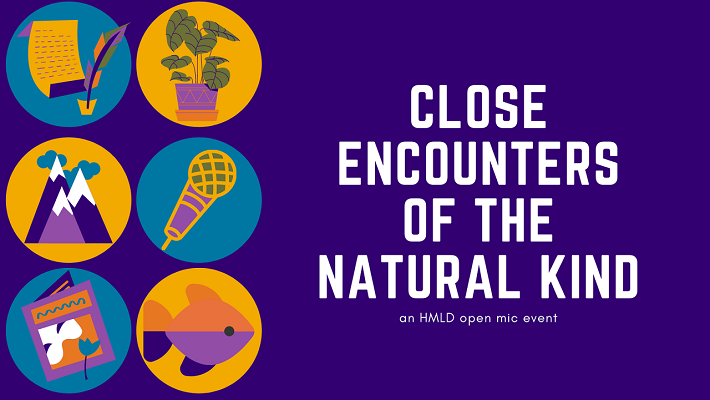Horses, swallows, a dog, a spider and an ostrich egg were featured in the first live storytelling event this year hosted by the Humanities with Leadership Foundations on Jan. 26.
While the event was initially planned as an in-person event, the event moved to zoom due to the temporary return to remote learning.
“Sitting in the audience at Close Encounters of the Natural Kind was one of the most relaxing Zoom calls I’ve had in the past two years,” said Alissa Avernick, fourth year History major. “When a person shares a story, they share a portion of their life. It’s probably the best way to get to know a person.”
The Humanities with Leadership Foundations program is an interdisciplinary program that combines humanities and leadership courses to develop students into engaged and attentive leaders.
Close Encounters of the Natural Kind was an event open to Laurier students, staff and faculty, as well as the broader Brantford/Brant/Six Nations community. The goal of the event was to entertain, inform and exhibit how stories are all around people and shape who they are.
“Stories allow us to recognize familiarities and similar experiences, which allows us to understand each other as humans and develop empathy,” said host Lisa Wood, professor of English and Child and Youth Studies.
Participants explored the interconnection between their personal stories and the natural world.
The environment was enjoyable, comfortable and open to impromptu stories. The event was inspired by The Moth, an organization that holds live storytelling events to advocate the art of storytelling.
Wood believes stories are essential for individuals and crucial for people as a collective.
“While they reveal our similarities, they also help us recognize differences between each other, allowing us to value and understand different groups.”
Students of all programs and years attended the event.
“It is through storytelling and listening that we allow ourselves to take off our invisible blindfolds and open our eyes, minds, and hearts to knowledge,” said Ekaterini Dimakis, third year Law and Society student. “I always love hearing people’s stories and experiences as it opens my eyes even more to how unique we all are.”
Averink found the event eye opening.
“I don’t know how often I’ve had it when I am telling a story and another person chimes in or gives a different viewpoint. At the core, stories unite people because they help us understand others.”
The event emphasized the importance of voicing stories in a shared space, explaining written stories have their place while oral stories revel in the benefits of community and connection.
“Having more events like ‘Close Encounters of the Natural Kind’ allows for people to have the space to tell their stories and to listen to other stories people may have,” said Averink.
Storytelling is an essential tool for social change, healing and dealing with contemporary problems.
Wood shares that in the context of the Truth and Reconciliation Commission, “the telling of traumatic stories is important and the stories being listened to is even more important. Storytelling has implications for healing and for understanding so far beyond that initial storytelling space.”
“It is the victims’ stories that provide the basis of our understanding of the true impact personal and institutional discrimination has on marginalized communities,” said Dimakis. “It is survivors’ stories that help us acknowledge the extent to which residential schools and the Indian Act actually hurt and will hurt Indigenous Peoples.”
“Stories allow us to recognize how we hurt and neglect individuals and communities and how we can do better to build a path towards healing, safety, and reconciliation.”
Wood recommends the book If This is Your Land, Where are Your Stories? by J. Edward Chamberlin, who looks within the context of colonialism, exploring the connection of stories to land and identity.
“We want to hear people’s stories,” said Wood.





1 comment
Thanks for the great coverage, and for all of your stories over the years, Sputnik!